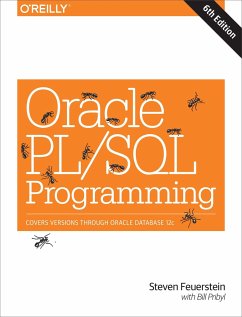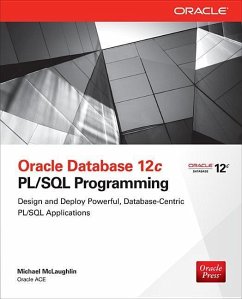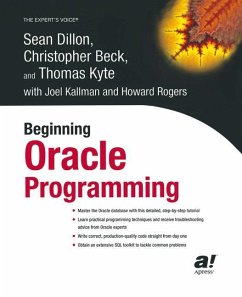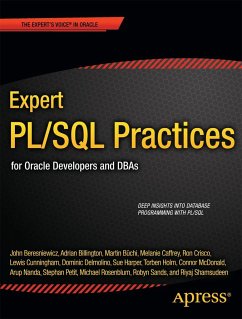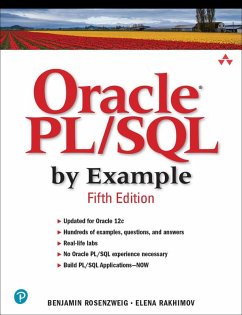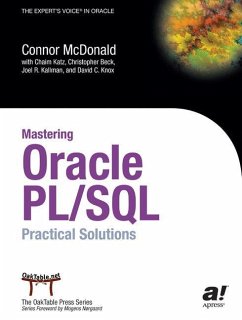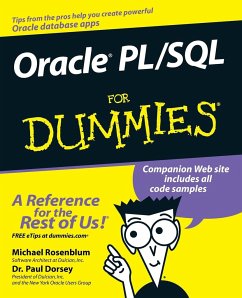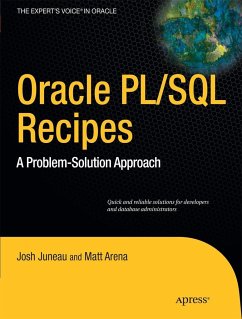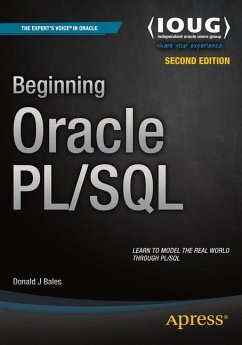Nicht lieferbar
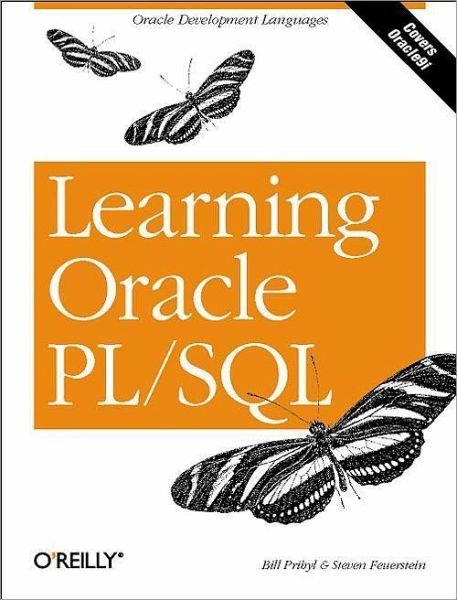
Learning Oracle PL/SQL
Versandkostenfrei!
Nicht lieferbar
PL/SQL, Oracle's programming language for stored procedures, delivers a world of possibilities for your database programs. PL/SQL supplements the standard relational database language, SQL, with a wide range of procedural features, including loops, IF-THEN statements, advanced data structures, and rich transactional control - all closely integrated with the Oracle database server. Knowing where to start with Oracle's procedural language is not always obvious to a newcomer, especially considering the language's feature set and the sheer size of the official documentation (not to mention Oracle'...
PL/SQL, Oracle's programming language for stored procedures, delivers a world of possibilities for your database programs. PL/SQL supplements the standard relational database language, SQL, with a wide range of procedural features, including loops, IF-THEN statements, advanced data structures, and rich transactional control - all closely integrated with the Oracle database server. Knowing where to start with Oracle's procedural language is not always obvious to a newcomer, especially considering the language's feature set and the sheer size of the official documentation (not to mention Oracle's ever-increasing number of pre-built PL/SQL programs). But "Learning Oracle PL/SQL" offers the signposts and guidance you need to come up to speed on the language, delivered in a manageable number of pages while covering all the essentials. Topics include: PL/SQL - what is it, and why use it? Why use PL/SQL instead of Java? Syntax and examples of all core language constructs Creating, using, and reusing stored procedures, functions, and packages Building web-based applications using PL/SQL features available "out of the box" (such as PL/SQL Server Pages) Securing PL/SQL programs against attack Benefits of third-party developer tools and integrated development environments Connecting PL/SQL to email, Java, and the Internet. Meticulously crafted with all new examples downloadable from "examples.oreilly.com/learnoracle", the book addresses language features available in all versions of Oracle, from Oracle7 to Oracle8i to Oracle9i. "Learning Oracle PL/SQL" is meant for a wide range of target audiences, including both beginning programmers and those already experienced with other programming languages. Whether you are a new developer, a crossover programmer from another database system, or a new database administrator who needs to learn PL/SQL, this book will get you well on your way.





